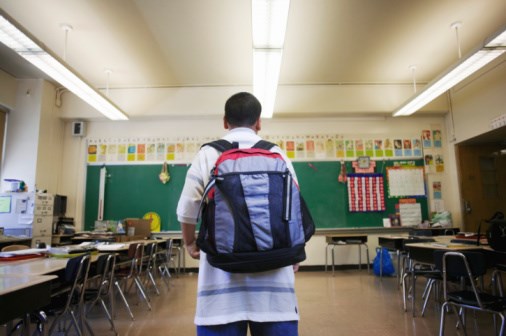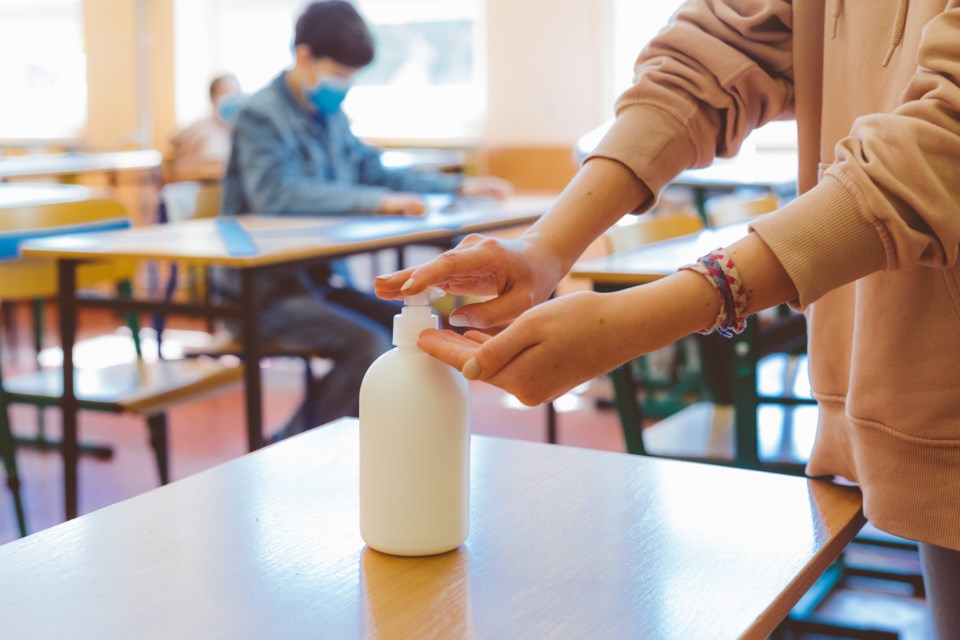Editor:
I never thought I would miss the way back-to-school jitters felt.
I used to be apprehensive at the start of each school year, but excited, too. I would buy new folders and decorate them with stickers, or maybe even get a new pencil case.
I would think about seeing my friends and my teachers, or post my schedule on my Instagram story to see who I had classes with. I miss being worried about what teacher I was going to get for math, or my annual nervousness about icebreaker games on the first day.
Now my worries are vastly different. The thought of back-to-school shopping hasn’t even crossed my mind, let alone what locker I’d pick or the arrangement of my schedule.
Instead, I’m terrified for the lives of those in my community. This year, back-to-school “jitters” are devoid of excitement. Far from what I hoped I’d be imagining for my junior year of high school, I’m anticipating the overcrowded halls and buses with a sense of dread.
This August, I’m texting my peers, but rather than comparing schedules, we’re talking about how we’re afraid of contracting what one of my close friends calls the “modern-day plague.”
Rather than nerves about making new friends or icebreaker games, back-to-school worries look like: “What if a student has COVID-19, is asymptomatic, and comes to class?” or “What if I get sick?” or “What if I infect someone else?”
I had hoped that my anxieties would be alleviated when we got more information from the school district, but the brief email we received did little to calm my nerves.
Maybe there will be a plan addressing student’s concerns coming out on Aug. 26, but I can’t envision it. I made the decision to enroll in a distance learning program online.
This program opens up many opportunities for me personally, and although I am excited to be a part of it, I also recognize that the fact I am able to enrol is a privilege that many students in our community do not have access to for a variety of reasons.
One may think that the fact that I’m no longer a student in one of the biggest high schools in the province would mean that my anxieties surrounding the return to school would cease, but that has been far from my reality.
My community continues to be at risk. My dad is a band teacher in Surrey at a school with around 800 students, and he is immunocompromised.
Still, he has to return to work. He does not have a choice. My best friends are still attending New Westminster Secondary School, and their younger siblings are attending different elementary schools around New Westminster. They are just as afraid, and I am afraid for them. They don’t have a choice.
Even with NWSS likely implementing a hybrid model, there are still many concerns that continue to go unanswered.
As a student, I feel as though the creators of this learning plan have never genuinely spent a day at a public school or know what it is really like. Teenagers are not ones to follow the rules. For example, just last year there was anincident where a student was allegedly assaultedby multiple other students in the hallway. Additionally, in meeting notes from an SD40 DPAC meeting held in January 2019, it was discussed that “vaping is popular at the high school and is even happening during class time.”
If these kinds of problems are persisting at the high school level, it is highly unrealistic to assume students will listen when teachers tell them to stay two meters apart, or only interact with those in their learning group.

In the press conference first announcing the return to school in September, Dr. Bonnie Henry said, "the impact of closing of schools can be lifelong for some children. We know there's been an increase in anxiety, in mental health issues for young people, with families that have had challenges with having children at home."
While this point has validity, it also ignores the fact that many teachers and students like myself have been feeling an intense increase in anxiety at the prospect of mandatory in-person learning. There are, of course, stressful home situations, but there are also many anxieties about returning to an overcrowded school during a global pandemic.
Yes, the impact of closing schools may be lifelong on young children, but we also do not know what the long term effects may be of contracting COVID-19. These fears are only increased by the fact that Henry herself has said on the return to school that she thinks “it's inevitable there will probably be some [cases].”Some cases are too many. With community transmission in our region on the rise, how many people’s lives are considered expendable by the government? Is my best friend’s life expendable? Is my dad’s life expendable?
Anxiety surrounding the mortality of my loved ones is affecting my mental stability as well as the mental stability of my peers.
If the B.C. government truly cares for the mental health of students, funding should reflect that by having more than one councillor per roughly 500 students at NWSS.
Additionally, a hybrid model that includes optional in-person attendance should be implemented in all schools, not just overcrowded high schools. In this way, families could decide what the best choice is for them and their mental health because each family is being affected by COVID-19 in vastly different ways. I was able to make the choice to switch to a distance learning program, but so many students in New Westminster do not have access to such an opportunity. We all deserve to be given a choice when our physical and mental health is at stake.
I may not be a medical expert, but after over a decade of experience, I’d say that I’m an expert at understanding the daily realities of public schooling. Those who are making choices that affect our lives should be consulting students during this process.
We are being considered expendable and not being given a say in what happens to us.
We are scared. Reach out to a student or teacher in your life and let them know that they have your support. If you or someone you know is being affected by the mandatory return to school, know that much as it might feel like it, you are not alone in your anxieties. I urge you to contact your local representatives, and school district contacts. You still have a voice, and you can make the choice to use it.
Juno Avila-Clark, New Westminster



